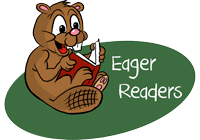If your child’s Kindergarten class is anything like my son’s, you have received a list of 10 to 12 sight words already in Term 1. After the kids have learned these ones, there’s another list to follow that one, and so on. I’ve had several parents ask me about these, so I’ve put together some information to help make learning sight words easy and fun.
What are sight words and why are they important?
There are many terms you may hear to describe these lists of words. Your school may call them: sight words, high frequency words, magic words, golden words…and the list goes on. Basically, these are words that occur most frequently in texts that children will read. If we want our children to be fluent readers, they must learn to recognise these words quickly, by sight (without having to sound them out).
What makes learning sight words difficult?
- Many of these words cannot be sounded out letter-by-letter because they have complex spellings. Some examples are: the, said, of, saw, one, all, you, was, her. Children may be relying entirely on their brain to ‘take a picture’ of what this word looks like to remember it. This is not a good strategy to rely on for several words, especially if your child is not a visual learner.
- Many of these words are meaningless on their own because they are simply used in the grammatical construction of sentences. Some examples are: the, said, of, saw, with, went, will, some, was. It’s often easier for children to recall words that have meaning, such as mum, love, cat.
Where to begin with sight words?
If we bombard our children with lists of words they do not know, they will likely dread the task. They may experience feelings of failure, especially if they have limited letter-sound knowledge. This is the last thing we want for our children in their first year of school! Here is how to avoid that:
- Write each word on an individual card/paper. (Do not just run down the list of words with your child.)
- Assess. Show your child one word at a time to see if any of them are already known. Create two piles: “known” and “unknown”. Congratulate your child on knowing how to read some words! (If it’s the beginning of Kindergarten, there’s a good chance there will be zero known words. Tell your child you’re going to help them learn these words.)
- Choose 2 or 3 new (unknown) words for your child to learn. Start with the easiest ones, such as “I”, “a”, “to”. Tell your child what each word says and have them repeat it. Do this a few times.
- Can you find…? Put these 2 or 3 “new” words in a column and ask your child, “Can you find the word I? Show me the word to.” etc. Note: This task is easier than asking your child to read/recall the word because you are telling them the word; they just have to find it. This task makes them feel more successful as they learn new words.
- Mix the “new” and “known” words together. Lay them out and ask your child to read and pick up all the ones they recognise. For any that are leftover, repeat Step 4 (Can you find?).
- Add more words. After your child has mastered these words and can recall them on their own, continue with this Step 3, adding one or two new/unknown words at a time. Choose words you think your child will be successful with. For example, choose words that start with a letter sound your child already knows. If they know /s/, they can learn see. If they don’t know /w/, don’t choose the W words, was, with, we.
Some Things to Remember
- Learning new words should be fun, not a chore. Keep it light and if your child is showing signs of frustration, stop and try another time.
- For a list of games to play with sight words, this post has a variety of ideas.
- We don’t want children to rely entirely on their ‘photo memory’ for every one of these words. We want to give them other strategies to help them learn these words in the first place, such as using the first letter sound (when possible).
- The best place to practise these words is in context –while reading their little take-home readers.
- Learning words takes time and known words are not always known! Sometimes kids forget words they know, because these words are only partially known. On the continuum of learning, we have different labels for how ‘known’ something is. Some examples are: not known, sometimes known, known in some contexts, known with some effort to solve, automatically known (without having to think about it).
